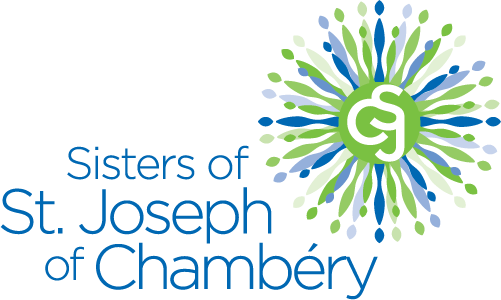04.02.2013
Ethics in the pursuit of Justice and Solidarity

This text aims to contribute to the building of a reflection leading to commitment to and solidarity with people who are wronged, and who are affected by the perverse logic of an unjust unethical world. The struggle for the emancipation of marginalized and unprotected human beings with regard to their fundamental human rights is a challenge. The concern is to propose a dynamic experience that generates an attitude of caring, from the perspective of a human and world view that calls for respect for others.
What is being ethical? Why be ethical? Human beings who are always in process need ethics. The ethical (ethos) is understood as the art of living together, leading us to act responsibly. The ethics of universal and unconditional love aims to guide the attitudes and behavior of human beings in relation to others in society. Uniqueness and plurality are elements that characterize and make up the originality of each person and promote, in the case of ethics, responsible human action.
The first meaning of ethics is to "remedy the injustice" done towards others, taking into consideration social responsibility, which consists of taking care of oneself and caring for others, with all the political, economic and socio-ethical implications. The center of this is the importance of commitment to a way of living requiring choices and attitudes of solidarity in the fight for justice and truth, in different multicultural realities of human existence. We need ethics to guide the reflection of those engaged as critical and creative people, calling for collective action, opening the horizons of a dignified life for all. Thus, justice for victims mobilizes us and makes us responsible to have an attitude regarding the suffering of those who are wronged.
The ethical call is to think of "how we live." An ethical stance is the ability to resist and say no to circumstances that deny life. From this perspective, one of the Urgencies of the Congregation and of the Planet assumed in the 2009 General Chapter, asserts: " to live an ethical lifestyle, conscious of our own consumerism and all that hurts humanity and the integrity of creation, in critical awareness that every choice we make has an impact on society and the planet,” (Final Doc. 2009 CG, p.7, no.3). In view of such a position, it is necessary to reflect and educate ourselves continuously to an ethical life and solidarity. Foremost in this respect, we must question ourselves about our responsibility and about the impact of our work in the world. Because, when we inquire about "what we do" and "what we believe," we are referring to the ethics of commitment. Given the above, ethics deals with the meaning of our life each day. This requires modifying habits and reaffirming attitudes of respect regarding human ecology. The cultivation of ethics leads to postures of respect for differences, leading one to assume ethical values such as commitment to the cause of the impoverished, with reference to justice and peace as being critical in the world, just as in the Gospel perspective. The purpose of ethics is to help us to make well-founded choices. According to Mário Sérgio Cortella, "I have things that I want, but shouldn't have, things that I should do, but can't, and there are things that I can do, but don't want to.” Within Cortella’s thought, we find some guidance on how to struggle against prejudice to ensure an education of substantial changes without violating human dignity.
The urgency of ethics education and promoting real change that create conditions for human coexistence require that we discuss more openly, and with wisdom, the challenges of everyday life. This requires critical consciousness regarding our naive beliefs and dogmas and closed mindsets. There are many difficulties and challenges in addressing these, requiring new convictions and policy definitions that are beyond the rhetoric of articulated speech. The Gospel and our charism always invite us to responsibility regarding ourselves and others. We have to exercise our rights and duties to be informed and have an education relevant for our times. We need open spaces for discussion to build together educational processes of human coexistence that promote peace and justice.
With the emergence of philosophy in Western culture, ethics came forth as an attitude of life and action, within the framework of the private and the public. In this sense, it encompasses good living behaviors for the integrity of the human person in the plan of creation. The importance of making choices always requires ethical criteria defined rationally. From this flows the need to know what guides our action in our institutions, always maintaining our posture as those who respect the right to life as an ethical value.
We are invited to think about the type of personal and social relations that we want to ensure in our community-building processes, in order to see ourselves as "equal" and "different," enlarging space for achieving political-cultural freedom through acts of communication that guarantee dialogue. In fact, diversity is essential to ensure the "creativity of the spirit," understood as socio-cultural discernment, seeking the ethical means to establish justice in an unjust order, and to bring to light the meaning of violence, which at the present time, is seen as normal. Justice for victims is the basic criterion that should determine the meaning of justice and ethics. We believe that the educational process of teaching and learning through an ethical perspective remains a permanent challenge and difficulty, calling into question the very contradictions of life, but also, strengthening us in our struggles, indispensable for a culture of peace and justice in the respect and promotion of human dignity.
Sister Nilva Rosin
Member of the Commission for Justice and Peace and the Integrity of Creation (JPIC) of the Sisters of Saint Joseph of Chambéry, Professor at the Berthier Institute of Philosophy (IFIBE) in Passo Fundo/RS - Brazil















